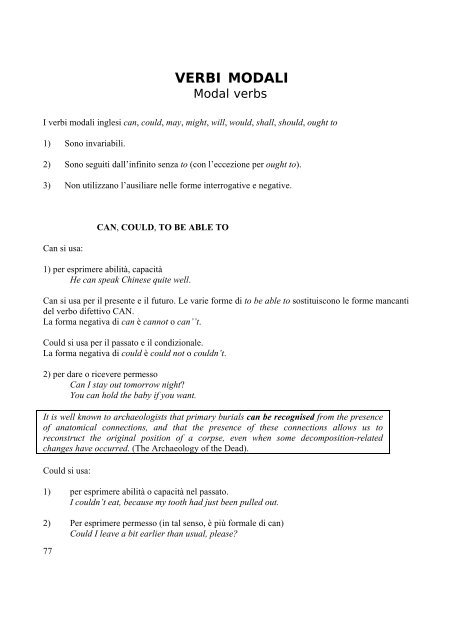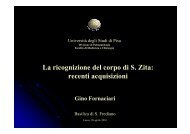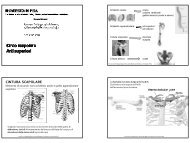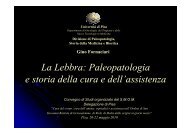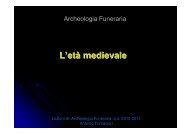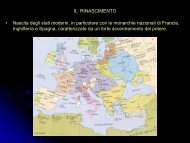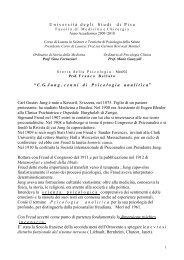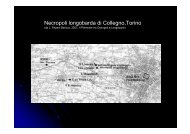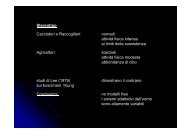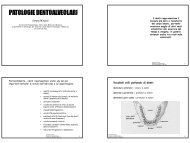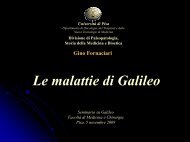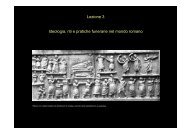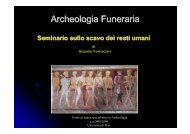Fondamenti della lingua inglese Laura Cignoni - Paleopatologia
Fondamenti della lingua inglese Laura Cignoni - Paleopatologia
Fondamenti della lingua inglese Laura Cignoni - Paleopatologia
Create successful ePaper yourself
Turn your PDF publications into a flip-book with our unique Google optimized e-Paper software.
77<br />
VERBI MODALI<br />
Modal verbs<br />
I verbi modali inglesi can, could, may, might, will, would, shall, should, ought to<br />
1) Sono invariabili.<br />
2) Sono seguiti dall’infinito senza to (con l’eccezione per ought to).<br />
3) Non utilizzano l’ausiliare nelle forme interrogative e negative.<br />
Can si usa:<br />
CAN, COULD, TO BE ABLE TO<br />
1) per esprimere abilità, capacità<br />
He can speak Chinese quite well.<br />
Can si usa per il presente e il futuro. Le varie forme di to be able to sostituiscono le forme mancanti<br />
del verbo difettivo CAN.<br />
La forma negativa di can è cannot o can’’t.<br />
Could si usa per il passato e il condizionale.<br />
La forma negativa di could è could not o couldn’t.<br />
2) per dare o ricevere permesso<br />
Can I stay out tomorrow night?<br />
You can hold the baby if you want.<br />
It is well known to archaeologists that primary burials can be recognised from the presence<br />
of anatomical connections, and that the presence of these connections allows us to<br />
reconstruct the original position of a corpse, even when some decomposition-related<br />
changes have occurred. (The Archaeology of the Dead).<br />
Could si usa:<br />
1) per esprimere abilità o capacità nel passato.<br />
I couldn’t eat, because my tooth had just been pulled out.<br />
2) Per esprimere permesso (in tal senso, è più formale di can)<br />
Could I leave a bit earlier than usual, please?


